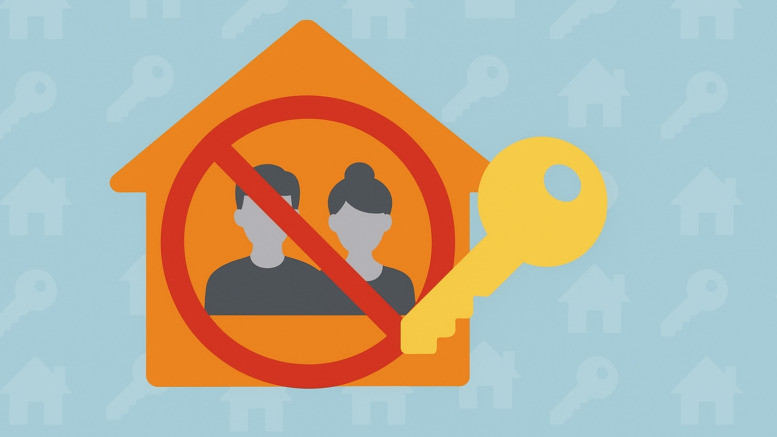More than two-thirds of UK landlords have caught tenants subletting their homes without permission, according to new research from Direct Line Business Insurance. With platforms like Airbnb and SpareRoom fuelling short-term lets, many investors now face risks to yields, insurance, and property security if tenants bypass formal agreements.
Landlords battle secret sublets in private rentals
The study found 68% of landlords had discovered unauthorised subletting. The top trigger was neighbour reports of unusual activity (31%), followed by routine inspections (28%) and noise or damage complaints (24%). One in five cases came to light via listings on online platforms such as Airbnb, SpareRoom or Gumtree, while almost one in six landlords spotted evidence through tenant social media activity.
For landlords, unauthorised subletting is more than an irritant. It can invalidate insurance, breach mortgage terms, and expose properties to higher wear-and-tear. With 43% of landlords now carrying out six-monthly checks and three-quarters visiting at least once a year, vigilance has become standard practice. Notably, nearly two-thirds of those who had uncovered a sublet said it had happened within the past 12 months-a sign that the issue is far from isolated.
How landlords are responding to subletting challenges
When faced with a sublet, landlords have taken mixed approaches. A third issued formal warnings, 30% reported the issue to letting agents, and 27% allowed the arrangement to continue but under a new agreement. Others took harder lines: 27% ordered subtenants to leave, while 25% began eviction proceedings. Some opted to raise rent or impose fees (22%).
To strengthen protections, 77% have since updated tenancy agreements, adding clearer penalties for unauthorised subletting (35%). Clauses now commonly require written approval for any guests or subtenants staying beyond a set period (34%), and four in 10 landlords have added explicit bans on subletting without consent.
Jonny McHugh, head of landlord at Direct Line, noted: “Our research shows that not all landlords are opposed to subletting, but the security of knowing who’s living in their property and that the right checks are in place are important. In this case, being upfront with tenants about what is allowed, and putting clear agreements in writing, can help prevent misunderstandings and protect everyone involved.”
Conditions under which landlords may accept subletting
Interestingly, the research shows that 53% of landlords would consider allowing subletting under certain conditions. These include ensuring clear tenancy terms with proper insurance (16%), subtenant vetting (13%), reference and credit checks (13%), and limiting short-term sublets to seasonal periods such as university summer breaks (11%).
Still, some landlords are unconvinced. One in five believe subletting undermines their ability to maintain control of their properties, while 8% cited negative personal experiences or peer accounts that deter them from ever allowing it.
For landlords weighing up the risks, the findings highlight the importance of tight tenancy agreements, proactive inspections, and frank communication with tenants. Allowing subletting may work in some cases, but the cost of hidden arrangements can quickly outweigh the benefits.
Editor’s view
Subletting is becoming a litmus test for landlord control in the PRS. Technology makes it easy for tenants to profit behind the scenes, but the liability falls squarely on landlords. The winners will be those who close loopholes early-through contracts, inspections and insurance. Should the law now give landlords clearer rights to block or regulate sublets?
Author: Editorial team - UK landlord & buy-to-let news, policy, and finance.
Published: 2 October 2025
Sources: Direct Line Business Insurance research; NRLA landlord guidance; UK Finance mortgage lending terms.
Related reading: Property fraud: Landlords urged to use free HM Land Registry alerts




